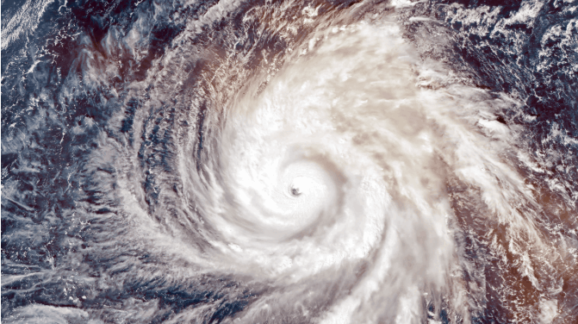Are Hurricanes Getting Worse?
On September 20, Aylin Woodward and Morgan McFall-Johnson wrote a juicy article for Business Insider on Tropical Storm Imelda. Like every other slow-moving storm that hits that part of the Texas coast, it put large areas under water. And, like every one of these storms that stalls near Houston, flooding was enhanced by the fact that downtown is continuous pavement.
Having published a bit in the science literature on hurricanes, I was especially interested in this claim by Business Insider: “warming overall makes hurricanes more frequent and devastating than they would otherwise be.”
It’s in the present tense: “makes.” Given that words have meaning, there must be some relationship between global surface temperature, hurricane frequency, and devastation, no? At least that would be a good (and testable) hypotheses.
Hurricanes are iconic. They can generate huge amounts of water, both from the sky and onshore wind-driven storm surges. And they certainly do generate tremendous amounts of ad revenue with continuous television coverage for glued viewers.
We have a lot of data on these storms. Parenthetically, “hurricanes” are tropical cyclones that just happen to be in the North Atlantic and North Pacific Oceans. I use the terms interchangeably here.
Since 1970, when weather satellite coverage became global, each and every tropical cyclone, including storms in the remote southern oceans, are in the record. Further, various governmental agencies keep their eyes on most storms, often generating estimates of their intensity and movement. And for those few for which this hasn’t been done, satellite images themselves provide fairly reliable measure of their strength and very accurate measurements of their motion.
Ryan Maue, who holds a PhD in meteorology from Florida State University (a prestigious program where tropical cyclones are a specialty), has developed an objective history of all such storms since global satellite coverage began. By multiplying their wind speed by the length of time that those winds blow, he can calculate the power of individual storms. And by adding all the world’s storms up every year, he can generate a history of hurricane power back to 1970, which he calls the Accumulated Cyclone Energy (ACE) index.
Superimpose this upon the surface temperature history since 1970. Temperatures fell a bit till around 1977, whereupon they rose nearly a half of a degree (C) to around the turn of the century. Then warming appears to stop, or pause, until mid-2014, but it was re-ignited in large part by the very strong El Nino whose temperatures peaked in 2016, setting and re-setting the highest temperatures recorded in global histories that go back to the 19th century.
(Note there are several different histories that have been constructed, but the one I am referring to, from the University of East Anglia’s Climate Research Unit is the only one that doesn’t fill in missing data with guesses, whether subjective or mathematical).
So if warming is “mak[ing] hurricanes more frequent and devastating,” then Maue’s history should show this happening, and because we are very near the warmest temperatures in this history, these tropical cyclones should really be humming along.
But there is no trend whatsoever in the global ACE Index that bears any correlation to mean surface temperature changes.
If the normal rules of science applied, we simply couldn’t say that tropical cyclones are systematically getting stronger and/or more frequent due to rising temperatures.
What’s great about the ACE Index is that it is a truly global measure of the destructive potential of these storms. Sure, there might be a spate of big storms for a few years in one or another spot, but, in toto, there’s just no signal.
But we frequently hear that maybe Atlantic hurricanes — the ones that hit here — are being enhanced by climate change. Perhaps it would be good to quote the folks from the National Oceanic and Atmospheric Administration’s prestigious Geophysical Fluid Dynamics Laboratory in Princeton. In a very recent (August 2019) publication, they note:
“In the Atlantic, it is premature to conclude with high confidence that human activities — and particularly greenhouse gas emissions that cause global warming – have already had a detectable impact on hurricane activity.
That statement is based upon the same data that Ryan Maue collected and analyzed, so, like hurricanes, it holds water.
Originally published at The Washington Times.
